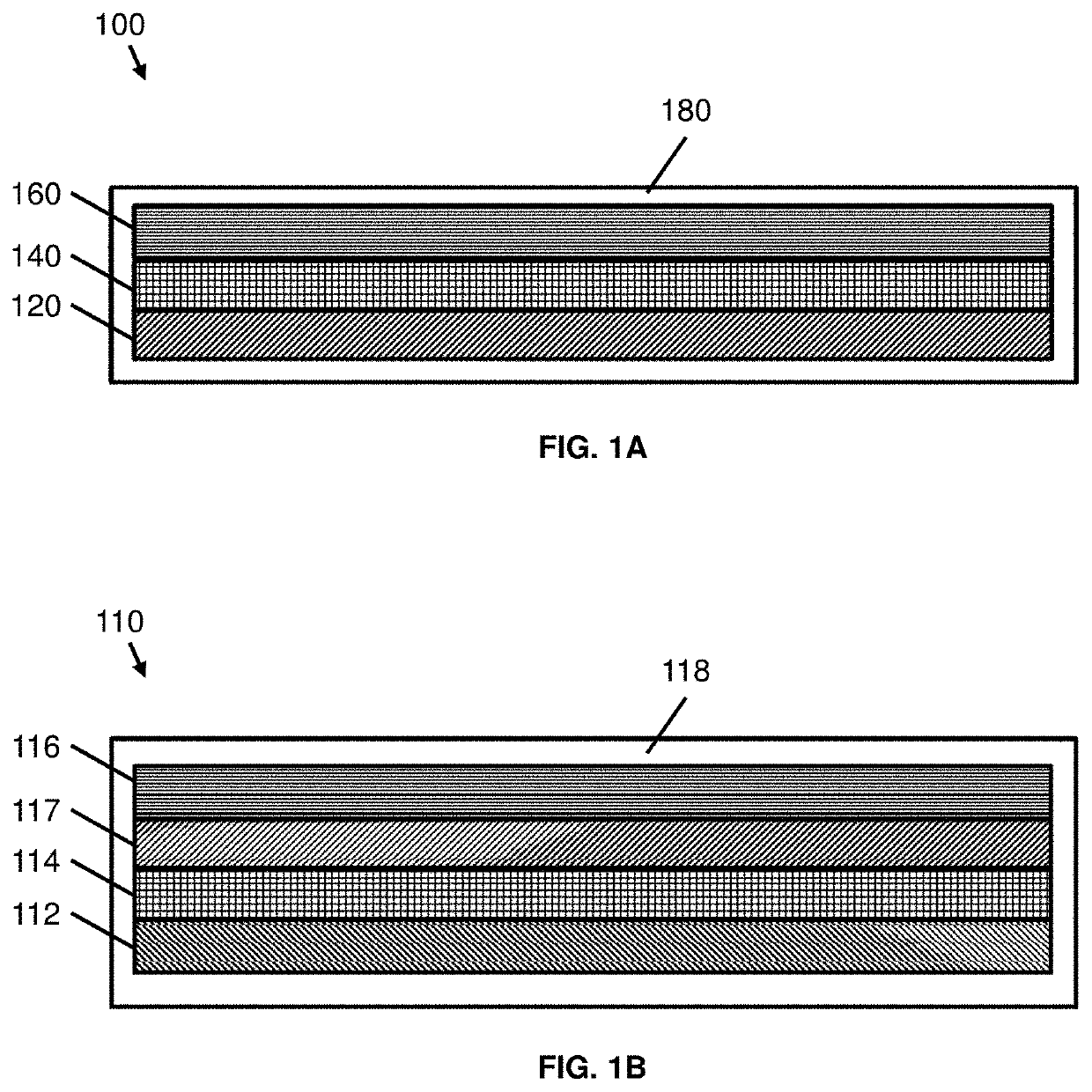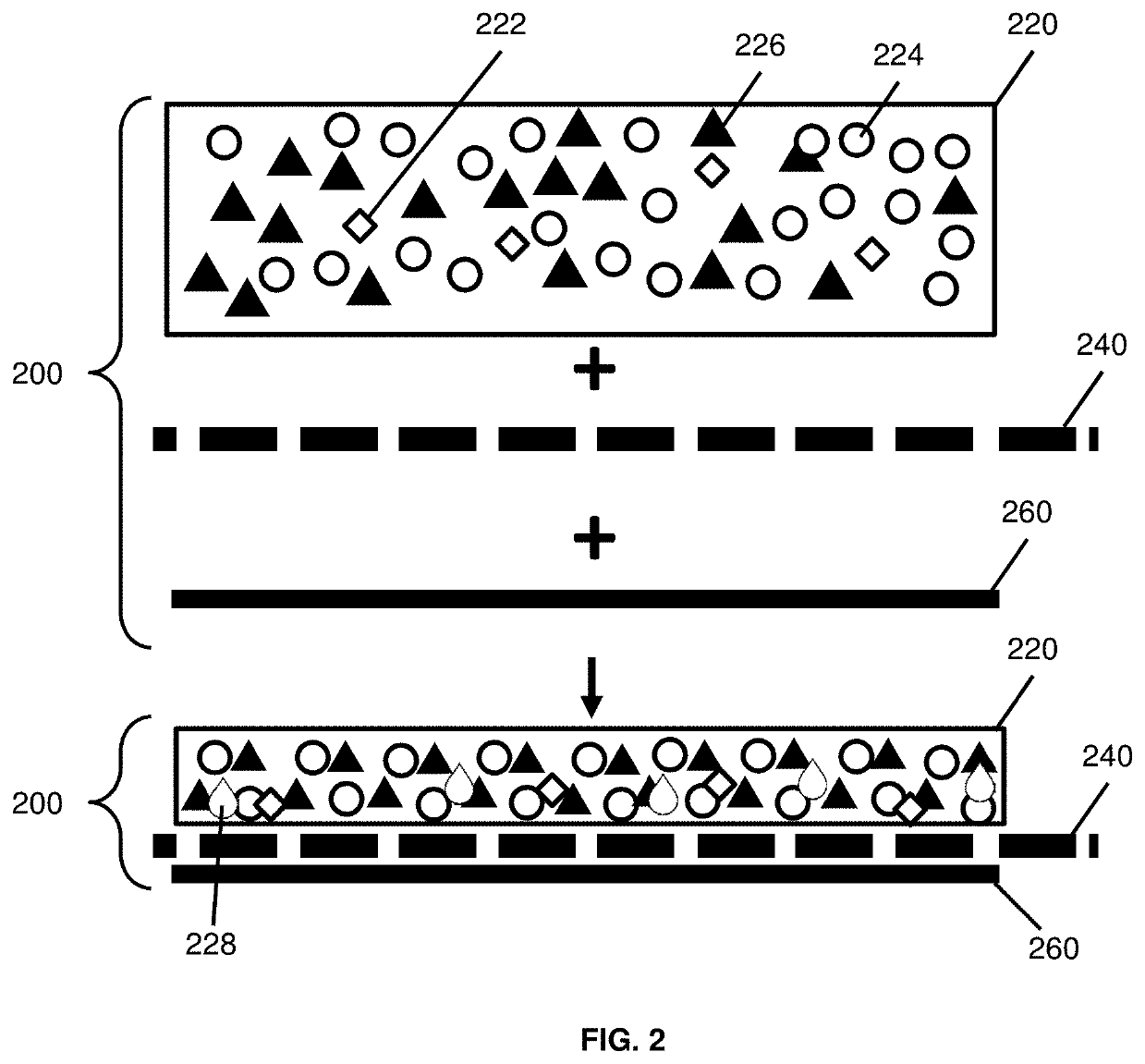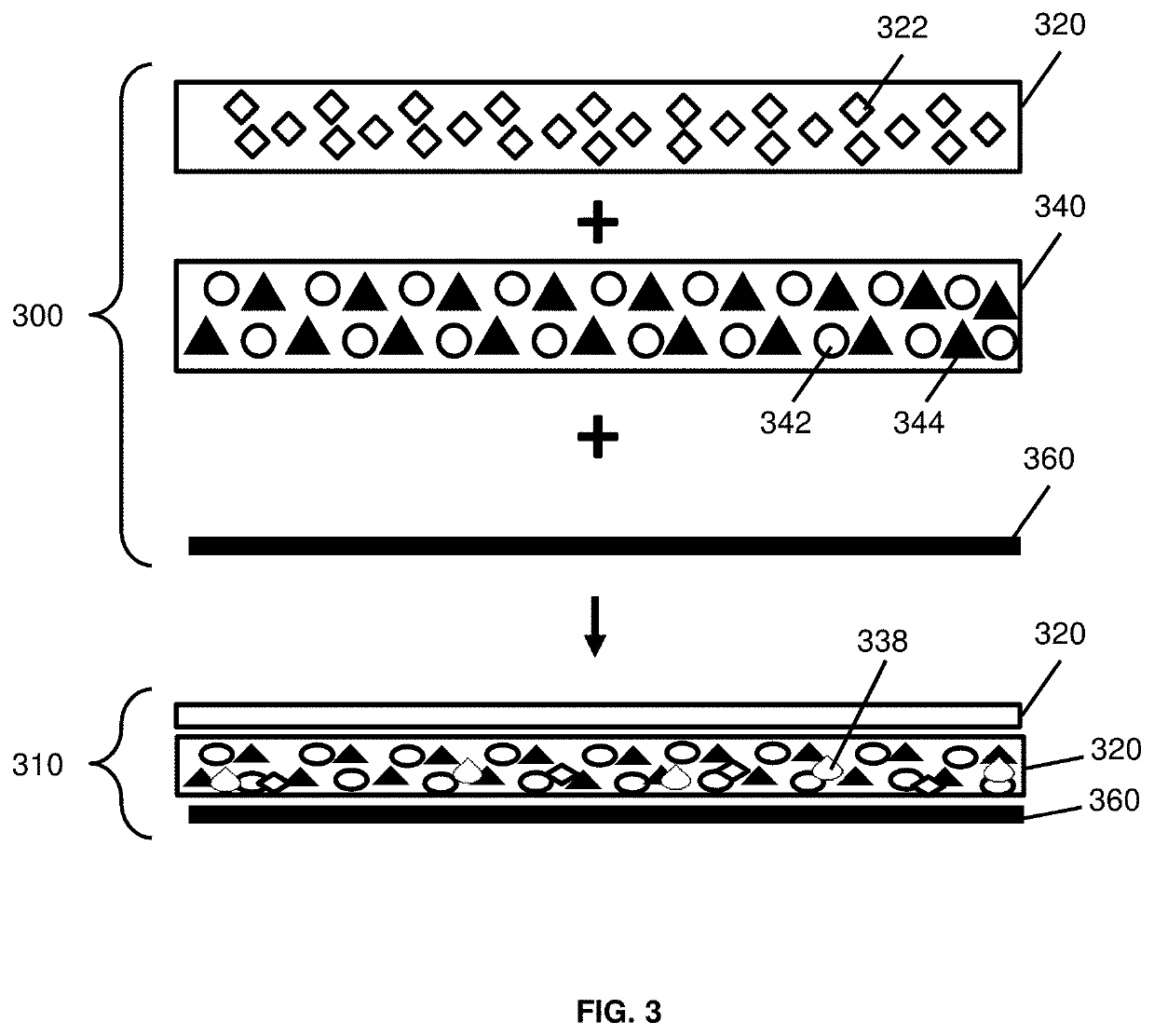High pressure sensitive color changeable indicators and methods of making such indicators
a color changeable indicator, high pressure technology, applied in the direction of instruments, fluid pressure measurement by optical means, disinfection, etc., can solve the problems of inability to survive bacteria, minor changes in the nutritional quality of foods as well as sensory characteristics, and difficulty in visually distinguishing processed from unprocessed products
- Summary
- Abstract
- Description
- Claims
- Application Information
AI Technical Summary
Benefits of technology
Problems solved by technology
Method used
Image
Examples
embodiments
[0072]FIG. 2 shows a schematic representation of one embodiment of the present pressure sensitive color changeable indicators before exposure to high pressure 200 and in its triggered state (after exposure to high pressure, e.g., 600 MPa for 10 minutes) 210. The pressure sensitive color changeable indicator comprises an acid and water releasing layer (e.g. a tablet) 220, a water permeable membrane 240 which is a transition layer, a pH sensitive color changeable layer (e.g. a color changeable film) 260, and a protectant (not shown). In another embodiment, a base and water releasing layer (e.g. a tablet) could be substituted for the acid and water releasing layer.
[0073]In this embodiment, the acid and water releasing layer, e.g. tablet, 220 is made up of an organic acid 222, hydrated particles 224, and polymer binder particles 226. The three components are combined and compressed in a die or press to form a solid tablet.
[0074]The acid 222 can be, for example, camphor sulfonic acid (CP...
example 1
[0097]An acid and water releasing tablet is prepared by adding 40 mg of solid organic acid (CPA), 1 g of hydrated silica gel (hydrated to 70%, 75% or 80% with distilled deionized water) and 500 mg of powdered polycaprolactone. A tablet is prepared in a press or die (1.0 T / 10 seconds) using 500 mg of the resulting mixture.
[0098]A Congo Red pH sensitive color changeable film is prepared as follows. 10 mL of a dye solution is prepared by adding water and Congo Red to achieve a dye concentration of 30 mg per mL of water. The dye solution is sonicated for at least 30 minutes to dissolve the dye. An ink is prepared by combining 7 ml of the dye solution, 20 g of 15% aqueous solution of PVA and an additional 3 ml of water. The ink solution is stirred. A film of the ink is cast on a PET plastic flexible sheet with k-bar no. 3 (ca. 23 microns wet thickness). The film is then allowed to dry. Discs of 13 mm in diameter are then cut out of the film.
[0099]The color changeable film discs are place...
example 2
[0102]An acid and water releasing tablet is prepared by adding 40 mg of solid organic acid (CPA), 1 g of hydrated silica gel (hydrated to 70-75% with distilled deionized water) and 500 mg of powdered polycaprolactone. A tablet is prepared in a press or die (1.0 T / 10 seconds) using 500 mg of the resulting mixture.
[0103]A Congo Red pH sensitive color changeable film is prepared as follows. 10 mL of a dye solution is prepared by adding water and Congo Red to achieve a dye concentration of 30 mg per mL of water. The dye solution is sonicated for at least 30 minutes to dissolve the dye. An ink is prepared by combining 7 ml of the dye solution, 20 g of 15% aqueous solution of PVA and an additional 3 ml of water. The ink solution is stirred. A film of the ink is cast on a PET plastic flexible sheet with k-bar no. 3 (ca. 23 microns wet thickness). The film is then allowed to dry. Discs of 13 mm in diameter are then cut out of the film.
[0104]The color changeable film discs are placed on a wa...
PUM
| Property | Measurement | Unit |
|---|---|---|
| pore size | aaaaa | aaaaa |
| pore size | aaaaa | aaaaa |
| pressure | aaaaa | aaaaa |
Abstract
Description
Claims
Application Information
 Login to View More
Login to View More - R&D
- Intellectual Property
- Life Sciences
- Materials
- Tech Scout
- Unparalleled Data Quality
- Higher Quality Content
- 60% Fewer Hallucinations
Browse by: Latest US Patents, China's latest patents, Technical Efficacy Thesaurus, Application Domain, Technology Topic, Popular Technical Reports.
© 2025 PatSnap. All rights reserved.Legal|Privacy policy|Modern Slavery Act Transparency Statement|Sitemap|About US| Contact US: help@patsnap.com



